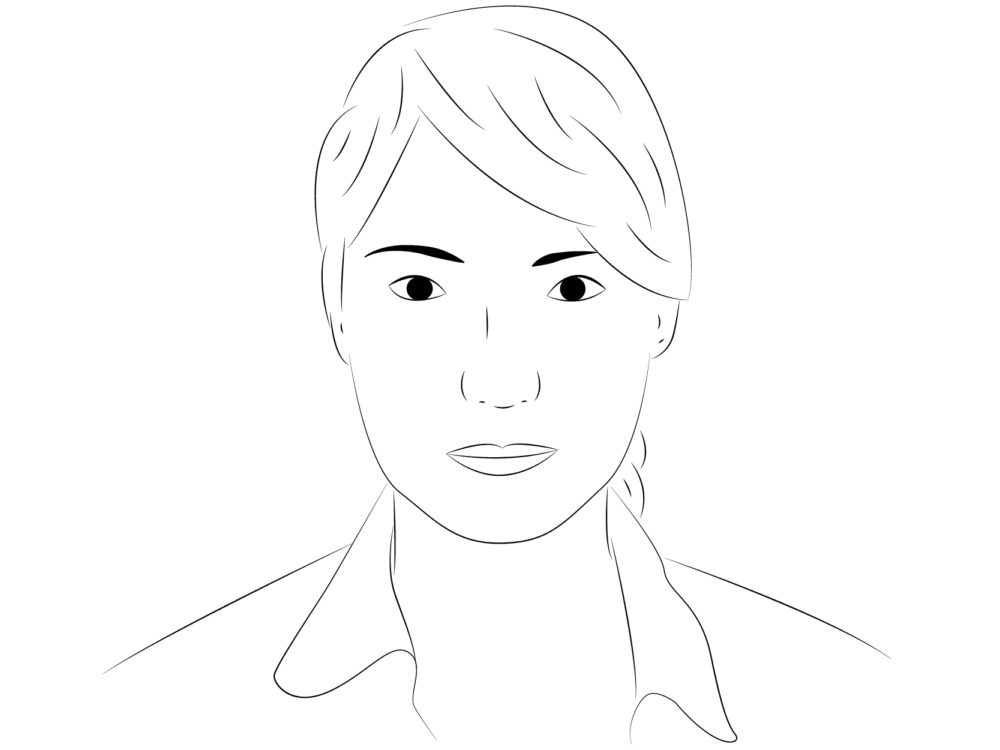I first became aware of the severity of the Venezuela’s hunger situation in June 2014. For the occasion of my marriage, I invited my mother and sister for my last minute, short-planned wedding in France. After four years of not seeing my family, I was more than happy to welcome them personally. Back at that time, I was handing out a master’s thesis about the Venezuelan beauty regime. Too absorb by my former subject, I was ignoring the fact than Venezuelan bodies were changing from remarkably voluptuous to notorious slender.
When welcoming my family in Paris, I quickly understood that hunger has taking over millions of Venezuelans stomachs regardless of class, age, and gender. As my family comes from a dentist tradition, it was hard for me to imagine that food scarcity had even reached the middle-wealthy Venezuelan working class. The very idea that money wasn’t enough to buy food was absurd. Rapidly, it became clear to me that neither money, nor beauty, nor political partake was sufficient to overcome the shortcomings of food access in Venezuela.
The roots that steered Venezuela into a food-scarce country
Hunger hit Venezuela unexpectedly. Despite the fact that there was no civil war, no floods, and no droughts, by 2014 the poor and middle classes were already feeling the ravages of food shortages. Scarcity in Venezuela is the inevitable end of a mismanagement story that led to an escalating inflation, a widening fiscal deficit, and growing shortages of essential goods. The “Maduro Diet” has forced millions of people to reduce their daily meals and increase the intake of low-qualify food.
The roots of today’s Venezuelan food crisis can be found in Chávez’ efforts to reorganize the economy. Beginning in 2001, as the government nationalized key industries such as oil and food while also implementing sweeping land reforms, many nationals and foreign investors began to rapidly repatriate their capital outside the country.
In order to control capital flight, the government intervened in the currency market fixing exchange rates in March 2003. Given that the exchange-control board was not able to supply the amount of dollars needed to satisfy imports, the black market immediately sprung out, increasing currency prices exponentially.
Despite the prevalent issues originating in the early 2000’s, Venezuela’s economy still benefited as an oil-exporting nation, however, following the financial crisis –as the price per barrel dropped from $140 to $40 per barrel in 2008– the economic situation became unsustainable.
Given that fewer goods were allowed to be imported at the official rate, more and more traders relied on the black market driving inflation from a moderate 13.6% (2006) to a soaring 487,6% (2016), the highest in the country’s history.
As price controls were introduced in 2006 to prevent retailers from pricing goods exorbitantly on the black market, the rising gap between the official and the black market prices rose rapidly, especially for essential goods and medicines.
With lines and lines of empty shelves or poorly supplied by a few imported –and inflated– products, supermarkets collapse whenever subsidized products arrive. Thus, and in spite of the government’s efforts to control prices, a vicious cycle of massive profit making arouse: while subsidized basic goods started to be scarce and their acquisition rigorously controlled, the reselling of these goods at inflated rates had never been so profitable.
To make sure that people are unable to illegally resale those subsidized products, only one unity of flour, rice, pasta, soap and cooking oil is allowed at a subsidiary price per month per household member. In order to avoid abuse of purchase of these goods each product must be registered in the supermarket and assigned to a purchaser according to his/her ID number.
Venezuelan borders with Brazil and Colombia now seem to be the most prosperous outposts. In these regions, food is not in short supply and there is a steady stream of traders buying controlled products for resale further inland. Hence, for millions of low and middle-class citizens relying on a 22’500 VEF (about $20) monthly minimum salary, the long hours of queuing, the aggressions, and the constant moving from one supermarket to another indeed pay off the bill by the end of the day.
Despite of the government’s efforts to control national food markets, their failed policies are the primary drivers of an even more inflated, speculative, and corrupt black market. Venezuela is one of the best examples highlighting how an excessively bureaucratic hyper-regulation of food can lead to starvation.
The agricultural sector –the biggest hole in Venezuela’s economy
The drop of the barrel price represents an enormous hole in the state’s finances, but the greatest decline is found in the agricultural sector. The food industry was –after oil and hydrocarbon– the most affected by the government’s ‘expropriation’ agenda – that is, the non-remunerated confiscations of private assets.
Since 2005, the government was leading not only a massive appropriation of private land –without compensation–, but also taking over rural land by simply ignoring the registered land titles and imposing their own-disenfranchising employees overseeing the production of crops.
With the price of vegetables kept low, farmer’s incentive became almost non-existent, and the harvesting of miles and miles of empty, fertile land now seems –due to the lack of infrastructure, machinery, and training– unrealistic.
As a result, the national production of food dropped dramatically –between 2012-2015, domestic grain production fell by 80%, meat by 40%, and vegetables by 18%–. Though shortfalls were once covered by imports, the government budget is now devoted to paying off the colossal $134,5 billion external debt.
Buying fewer essential food items, reducing the number of daily meals, and eating less at the main meal are the most widespread strategies when coping starvation in Venezuelan households, especially those with children.


